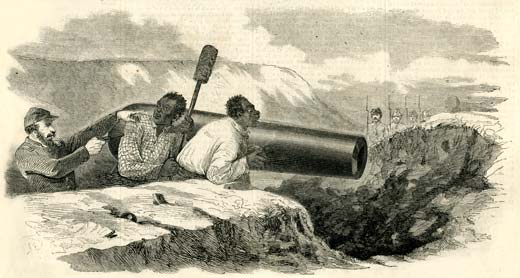-
Fall 2011
Volume61Issue2
Northern
Source  Douglass Essay
Douglass Essay

One of the strongest voices for abolitionism came from former slave Frederick Douglass, whom Lincoln invited twice to the White House to discuss slavery. In this essay, Douglass continued to push Lincoln and other Northerners whom he believed were moving far too slowly in recognizing the rights and abilities of African Americans.
Why refuse the aid of colored men?
It is now pretty well established, that there are at the present moment many colored men in the Confederate army doing duty not only as cooks, servants and laborers, but as real soldiers, having muskets on their shoulders, and bullets in their pockets, ready to shoot down loyal troops, and do all that soldiers may to destroy the Federal Government and build up that of the traitors and rebels... Rising above vulgar prejudice, the slaveholding rebel accepts the aid of the black man as readily as that of any other. If a bad cause can do this, why should a good cause be less wisely conducted? We insist upon it, that one black regiment in such a war as this is, without being any more brave and orderly, would be worth to the Government more than two of any other; and that, while the Government continues to refuse the aid of colored men, thus alienating them from the national cause, and giving the rebels the advantage of them, it will not deserve better fortunes than it has thus far experienced. Men in earnest don't fight with one hand, when they might fight with two, and a man drowning would not refuse to be saved even by a colored hand.
From Monthly, volume 4, September 1861.

Confederates often pressed African Americans into service, as caricatured, above, by a Harper's Weekly woodcut. These two men at Yorktown, Virginia, in 1862 were killed by a sharpshooter moments later.
